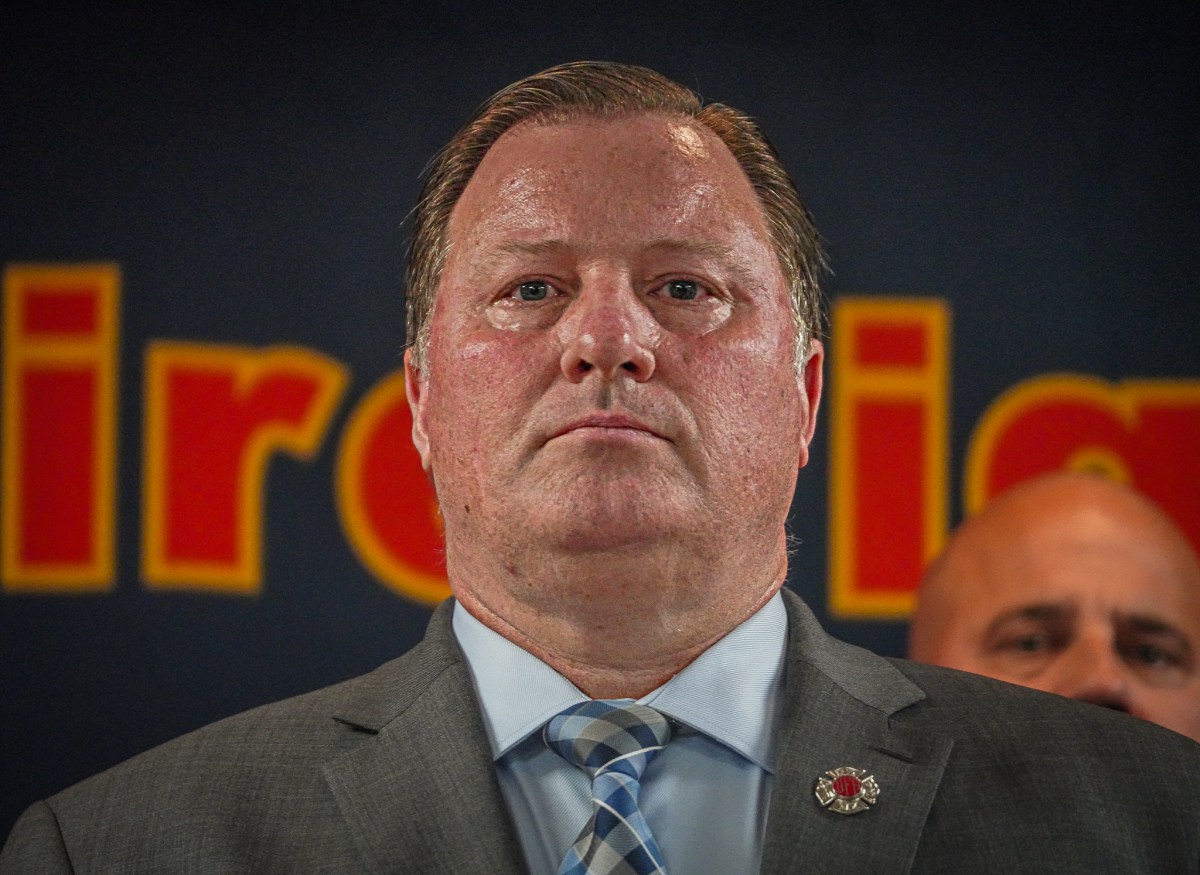Firefighter unions declared Monday that members of New York’s Bravest who valiantly served at Ground Zero during and months after the Sept. 11, 2001 terrorist attacks remain in desperate need of medical services as more of them die of illnesses related to their work.
On the heels of the 23rd anniversary of 9/11, Uniformed Firefighters Association (UFA) President Andrew Ansbro and President of Uniformed Fire Officers Association Jim Brosi (UFOA) noted that the death toll among firefighters who have died of 9/11-related illnesses now exceeds the 343 firefighters who died in the 9/11 attacks themselves. Members of the department who toiled at the toxic World Trade Center site for months after the attack in search of fallen colleagues and other victims are getting sick and dying at high rates as the years go by.
“The numbers are alarming nearly 23 years away from the event. But the numbers don’t paint the picture of how people are suffering, how people become dependent on quality medical care. And although they’re alive in life, they are not necessarily living,” Brosi said. “These people are suffering every day just trying to stay alive between scans, the uncertainty of those outcomes.”
Brosi added that many of the cancers afflicting members of the department are aggressive in lethality. In one example, he noted that one firefighter in his early 50s went from being on active duty to being forced off the job from illness, then eventually dying of it within a 12-month period.
With this in mind, Brosi is calling on the public to pressure their House members and senators to support legislation increasing coverage of firefighter medical costs through the 9/11 Responder and Survivor Health Funding Correction Act.
The bill, sponsored by New York junior Senator Kirsten Gillibrand, extends ongoing federal funding for 9/11 first responder healthcare through the 2033 fiscal year; sets new criteria for funding the healthcare program through 2090; and expands the ability of health care providers to diagnose whether an individual’s health condition is directly related to the 9/11 attacks.

“We urge every single one of you and all of your constituents and anyone hearing this message to urge their congressmen, their representatives, to get behind the 9/11 Responder and Survivor Health Funding Correction Act, so that we don’t have to turn people away,” Brosi said.
The funding for first responders to receive aid is expected to run out by 2028, something both Brosi and Ansbro know the importance of since their fathers, who were part of the program, also recently passed away.
With the 23rd anniversary of the largest domestic terror attack in American history on the horizon, the union heads say they hope the renewed focus will also bring about more eyes on the ongoing suffering of those who lived it firsthand. Along with battling illness, these firefighters are also in a race against time — because with the passage of time, the significance of 9/11 is fading from public memory.
“The further we get from that, the further we get from the sympathetic group that might recognize what a national tragedy this was, the less likely we’ll be able to get funding,” Brosi said.
Ansbro stressed the urgency of finding federal money to care for those whose sacrifices at Ground Zero 23 years ago have shortened their lives.
“We know our members keep getting sick — it’s not stopping,” Ansbro said. “Every month, we are burying three or four FDNY employees that have passed. The numbers just continue to grow.”

































